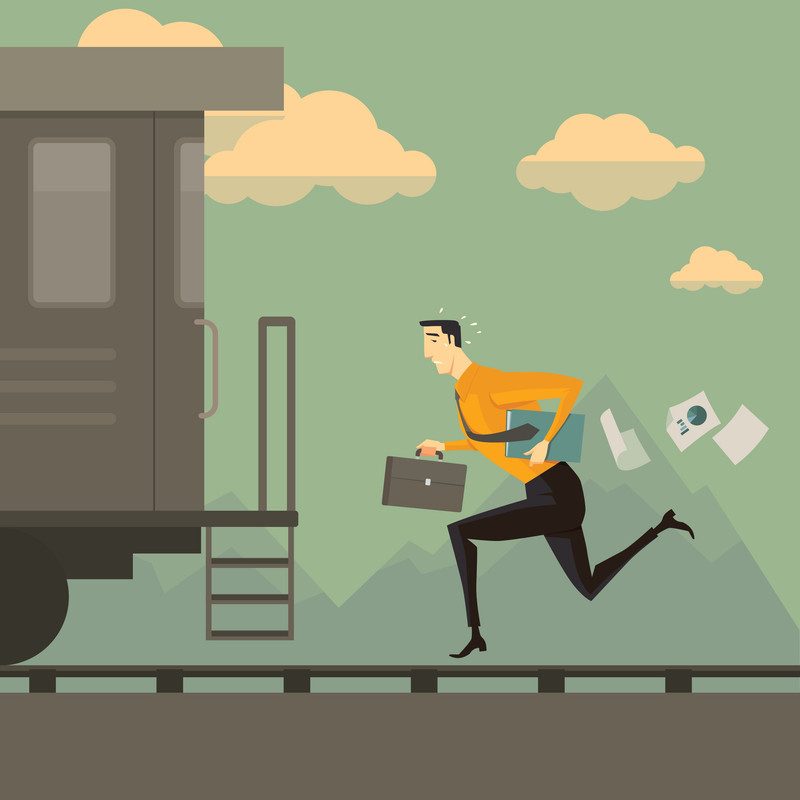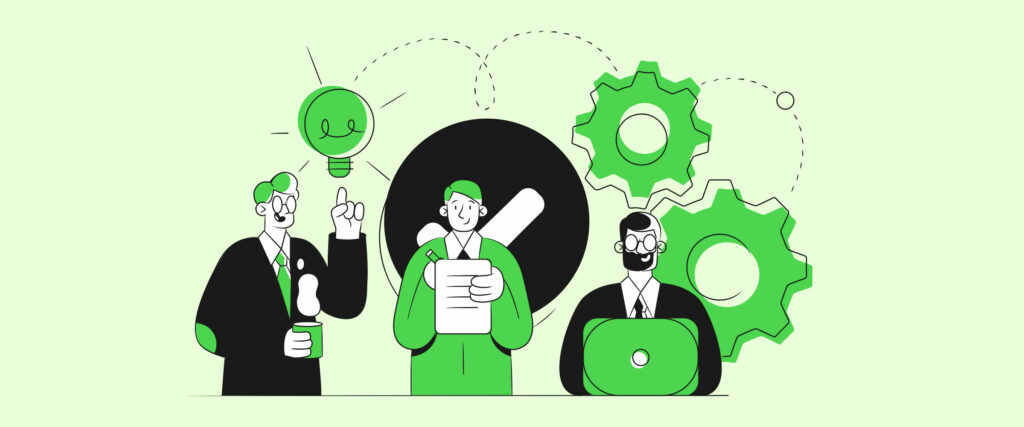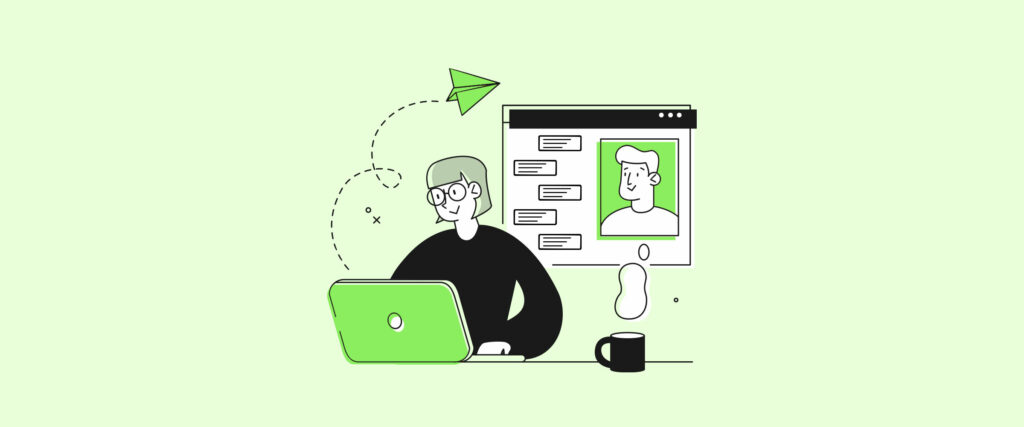This year will see the continued evolution of SaaS cloud applications and once again we find ourselves at another inflection point. The next step brings into focus the final piece of the jigsaw and delivers on what ERP has been promising for decades – simply to make our lives easier at work.
Digital transformation is already here. There is no need to carry on debating whether people will continue to work from home or return to the office. Everyone is already working everywhere but the emphasis is changing. We have to break out from the functional silos that ERP systems create and look across the wider enterprise. Work is now coming to you rather than you going to work.
Organisations that continue to ignore the evolving needs of their workforce and do not have their people and the employee experience at the centre of their strategy will continue to lose pace with those who are prepared to invest. For some, this has already proven to be fatal. Be warned, no industry is immune to digital disruption.
Stay relevant – take the experience economy seriously
Any company that does not deliver a seamless customer experience will be forever chasing the next sale while their competitors build meaningful and lasting relationships with theirs. Deep customer relationships create customer advocacy and this creates repeat business.
JP Morgan estimate that the experience economy Total Addressable Market (TAM) size is $110bn globally and Gartner research analysts are predicting that by 2024 organisations with an established multi-experience strategy will outperform their competitors in both customer and employee experience satisfaction metrics with:
• 40 percent of professional workers orchestrating their own business application experiences like they do their music streaming experience
• 50 percent of all major business applications will include at least one or more types of no-touch experience
• 70 percent of self-service customer interactions will be initiated by speech
To be successful organisations must always stay relevant to their market. The Gartner research makes a compelling argument that understanding both your customers’ and employees’ needs, wants, and behaviours on an individual level is more important than ever.
Delivering great products and services still needs human interaction. The consumer grade digital B2C world we all experience in our personal lives has now arrived in the workplace. We demand one click.
By creating real-time subconscious digital experiences that make employees efficient, effective, and most importantly successful, increases employee satisfaction as they feel valued. Employees now get to spend their most precious asset – their time – dealing with customers and/or citizens and not wading through endless back-office organisational bureaucracy.
The time to invest is now
The infamous Richard Branson quote, “Clients do not come first. Employees come first. If you take care of your employees, they will take care of the clients”, is true. So why then do we continuously deny the type of capability we subconsciously use in our social lives to our employees at work?
Even with modern SaaS cloud applications the way we interact with technology still does not reflect the way an organisation actually works and does not reflect the human element that contributes to an organisation’s culture. Very few employees inside an organisation work within a functional silo as the business processes that support service delivery connect front-office to back and span multiple functions and supporting systems outside a core ERP platform.
Inefficiencies in the workplace exist as individuals spend considerable amounts of time undertaking non-productive work in driving processes in functional silos rather than focussing upon those value-add strategic tasks that require human thinking and business relationships. This often creates pure frustration on an employee’s part. Consequently, there is a strong phycological human behavioural and cognitive element to finding the employee experience nirvana.
As we crawl out of economic recession the war on talent still remains.
Employees’ expectations are that they will not only get technology that works but tech that makes them successful in their role. If you want to attract and retain the best talent you need to create an environment that clearly demonstrates you value them.
Any company that does not deliver a seamless customer experience will be forever chasing the next sale
The direction of travel has been set
The experience economy is no passing fad with industry titans like Bill McDermott, CEO at ServiceNow, Marc Benioff, founder and CEO at Salesforce, and Mike Ettling, CEO at Unit4 all setting the direction of travel since late 2019. Just recently Larry Ellison, founder and chief technology officer at Oracle has also entered the fray.
The front office platform vendors are now looking to provide enhanced customer and employee experiences across the enterprise, breaking down the silo functionality of back office systems and bringing the work to the user by using technologies such as artificial intelligence, machine learning, adaptive analytics and interoperability.
Josh Bersin, a renowned HR industry evangelist and analyst was quick to identify this as early as 2019, with his insights on the ‘employee experience platform’ being introduced into the workplace architecture.
Naturally being in an industry that loves its labels and acronyms we refer to it as Enterprise Service Management (ESM). However this is only the beginning as the workplace cloud-based technology agenda is now set for the next decade.
The rise of the employee experience platform
The evolution of the experience economy is so much more than an intelligent employee portal enabling access to a wider range of inter-departmental services. The leading ESM technology vendors like Salesforce and ServiceNow are providing platforms that will in time have the capability to deliver individual personalised experiences automatically in the workplace. This is the nirvana of the experience economy.
However to achieve this you have to combine the experience layer ESM applications with the back office business process ERP. Consequently, a new experience architecture materialises that can provide personalised experiences over standardised processes.
An experience architecture is data driven and takes advantage of a myriad of new technologies. It is this that drives a personalised employee experience bringing the relevant application services to the user at the appropriate time, unifying the underlying ERP platforms, various lines of business, front office systems, and external trusted industry relevant systems but without the user ever having to touch these systems directly.
Imagine being contacted by phone or text message to initiate an action, or to make you aware of a relevant event, and then being able to communicate through voice when required to access the company portal on your remote device; what you are presented with is an individual personalised front end. All automatically generated and configured with no customisation and applicable to you for that moment in time, with the same standardised processes in the background being executed. This is what the future looks like.
Adopting the entrepreneurial mindset
2021 will only see the experience economy gaining momentum. To take advantage, organisations need to adopt an entrepreneurial mindset, have a positive attitude and a willingness to step up and do something to embrace the direction of travel.
So think big, think different; be prepared to take calculated risks; ignore your critics and remember it’s not just about making money! It’s about contributing by making a positive difference.
My advice for 2021, be different, be you and go be brave, because this train is leaving the station.
Mark Sweeny, founder, de Novo Solutions





